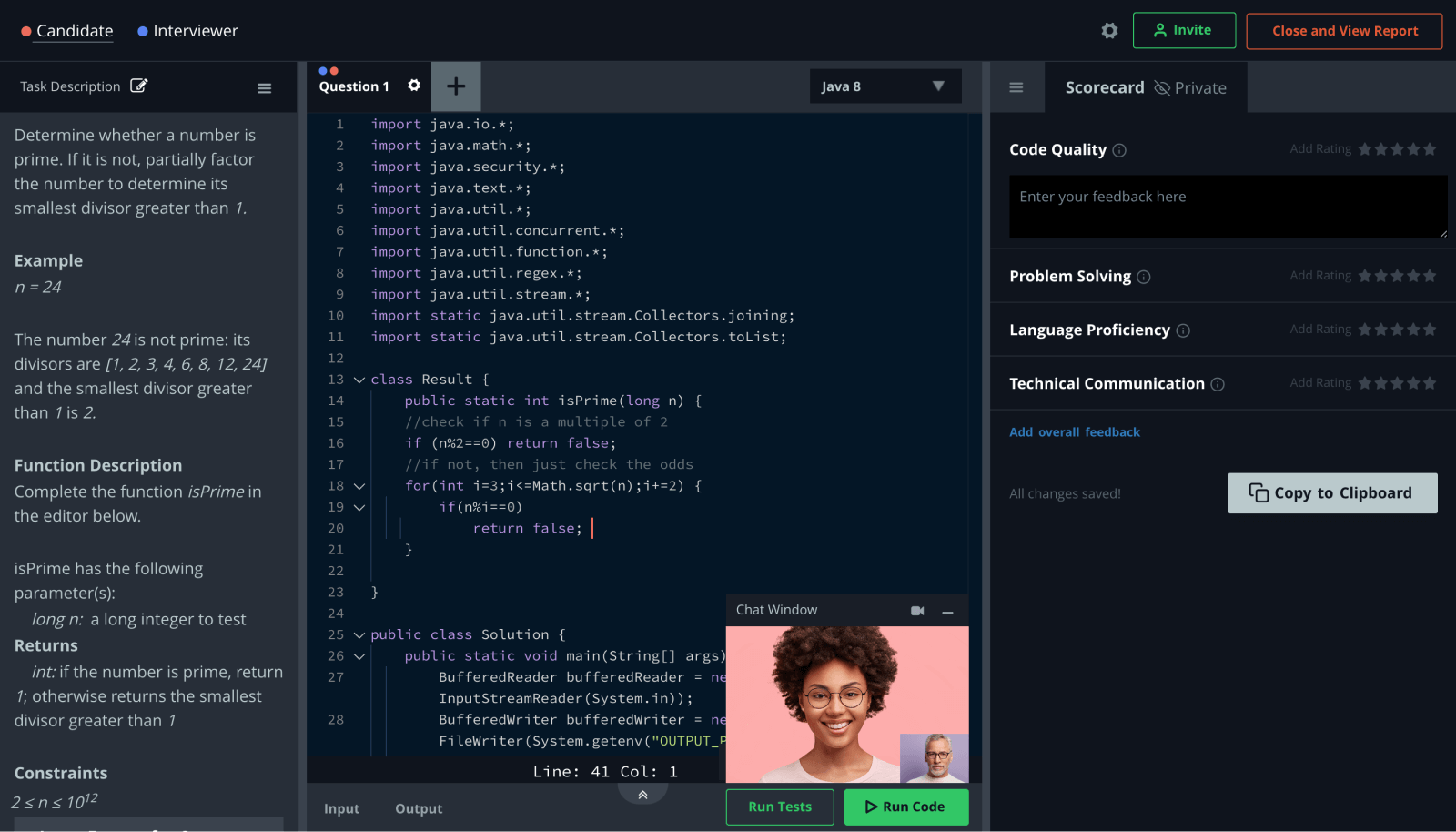Whether you’re a non-technical founder looking for a partner or a mid-sized organization looking to expand their talent pool, remote developers can help move projects forward without the need for office space. Many remote developers also work on a freelance or contract basis, providing businesses with a lot more flexibility than full-time employees.
While there are many benefits to hiring remote developers, it can be hard to find, hire and manage remote developers if you don’t have a lot of experience with remote work. The good news is that modern tools have made it easier than ever to narrow down candidates and efficiently communicate with them to keep your projects on schedule.
Let’s take a look at the different types of remote developers, how to assess technical skills, and what’s required beyond technical skills.
Remote developers are a popular way to scale up without the high cost of full-time employees in an office environment. Share on XWhat Kind of Developer to Hire
Many businesses looking to hire remote developers want help building and/or maintaining a software application. In some cases, they may only require temporary help to build an initial prototype or augment their existing team to meet a deadline. These requirements influence the type of developer that’s required to meet a goal.
There are several different types of developers:
- Traditional Employees: Remote employees are becoming increasingly commonplace and job boards, like WeWorkRemotely, have made it easy to find talent around the world that’s willing to work remotely for your business.
- Freelancers: Individual freelancers or contractors work on a fixed or variable cost basis for multiple clients at once. Oftentimes, you can find these developers using platforms like Upwork, which help manage tasks and track billable hours.
- Agencies: Development groups might specialize in certain industries or tech stacks (e.g., iOS development firms). With many developers working for them, agencies can quickly scale up or down depending on your project’s requirements.
- Team Augmentation: Team augmentation services are designed to support an existing internal development team with some extra help. Typically, these services provide senior-level engineers that double as consultants in executing best practices.
At Sharkbyte, we specialize in team augmentation services that provide specific expertise or additional manpower to help move a project forward. The benefit of team augmentation is that you don’t need to vet and manage multiple freelancers; rather, you have access to an agency partner with a simple and transparent pricing model and staff across the U.S. and Canada.
How to Assess Technical Skill Sets
There are many different ways to assess a remote developer’s technical skills. When choosing a method, you should carefully consider the job requirements and avoid unnecessary or time-consuming tasks. For example, whiteboarding binary tree algorithms may not be an appropriate prerequisite for a junior level WordPress plugin developer!
The most popular assessment strategies include:
- Technical Interviews: Technical interviews involve asking candidates technical questions to assess their fundamental computer science knowledge, as well as having them live-code to demonstrate their programming skill sets. These interviews are often conducted through screen sharing programs, like Zoom or Google Hangouts.
- Take-Home Project: Assign the candidate a relatively short project that relates to the type of work they’ll be doing. During a subsequent interview, you can use the project to ask pointed questions about design decisions, as well as have them live-code a small modification to showcase their thought processes.
- Online Assessments: HackerRank, Codility, and other online screening tools come up with challenges to assess technical skills. You can generate tests based on your company’s tech stack and desired level of experience (e.g., junior vs. senior engineer) while ensuring that everyone is treated equally.

HackerRank’s Code Pair Interface - Source: HackerRank
The right option for your business depends on the type of developer that you want to hire (e.g., full-time vs. contractor) and the level of developer that you require. If you’re offering full-time employment, many candidates will be willing to accept take-home projects and lengthy interviews whereas contractors may only be willing to do shorter online assessments.
When working with an agency, like Sharkbyte, you don’t necessarily need to worry about assessing technical skills, as agencies typically have their own vetting processes. For example, we assess technical prowess, aptitude, communication and trustworthiness when hiring developers, so clients don’t have to worry about that step in the process.
Looking Beyond Technical Skills
Technical skills are important, but ultimately, software development is a team effort. Communication is critical to ensure that everyone is efficiently working toward the same goal—especially when working remotely without face-to-face conversation. And, business skills can be critical in situations where developers are making high-level decisions.
Some important non-technical considerations include:
- Time Differences: Remote developers may be located in different time zones, which can impact their ability to communicate in real-time with other team members. When hiring remote developers, you should ensure that there is an adequate overlap in working hours or a plan to communicate outside of work hours.
- Tools & Processes: Development teams use many communication tools and processes that become even more important with remote work. Candidates should be familiar with processes, such as daily stand-ups, and be willing and able to use communication tools, such as Trello or Slack, to remain on track.
- Communication Skills: Candidates should be assessed for their communication skills, such as their history working on teams and familiarity with code reviews. If you’re using team augmentation, you may also want to ask about a mentoring experience if you’re looking for them to transfer skills to your in-house team.
- Business Skills: Non-technical founders working with a third-party, or similar situations, where developers are making higher-level business decisions require a certain amount of business skills. You don’t want to hire developers that are overengineering a solution or are cutting corners that will come back to bite in the future.
The Bottom Line
Remote developers are becoming increasingly popular as an option for short-term contracts, as well as a way to expand the available talent pool for full-time employment. When hiring remote developers, you should assess relevant technical skills without omitting non-technical skills that can prove equally important in long-term success.
If you’re looking for some extra manpower for your project, team augmentation might be the right option for you. Contact us for a free consultation or read more about our team augmentation service. We also provide custom roadmap and development services to those that are just starting out or want to completely outsource a project.



